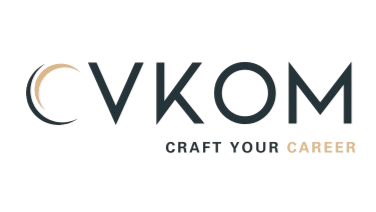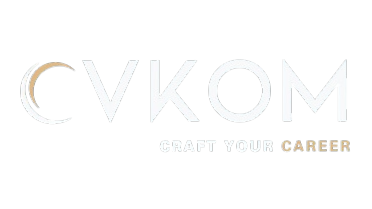In the logistics and supply chain industry, your resume should focus on your skills in managing inventory, optimizing processes, and solving problems. Use strong action verbs and quantifiable metrics to showcase your achievements in these areas. Tailor your resume to the specific job you are applying for by incorporating relevant keywords from the job description.
How to
Write a Resume for Jobs in Logistics and Supply Chain: A Comprehensive Guide by
CVKOM
The logistics and supply chain
industry plays a critical role in global business, managing the flow of goods,
services, and information. Whether you’re applying for a role as a supply chain
analyst, logistics coordinator, or warehouse manager, a strong resume is
essential to showcase your organizational skills, problem-solving abilities,
and expertise. At CVKOM, we provide tailored solutions to help
candidates create resumes that stand out in this competitive field.
Why
a Strong Resume is Essential for Logistics and Supply Chain Jobs
- Highlights Critical Skills: Employers value candidates with expertise in inventory
management, operations, and data analysis.
- Demonstrates Problem-Solving Abilities: Your resume must showcase how you’ve addressed
challenges and optimized processes.
- Communicates Your Value: Employers look for efficiency, cost-saving strategies,
and effective team collaboration in candidates.
- ATS Compatibility:
Incorporating industry-specific keywords ensures your resume passes Applicant Tracking Systems (ATS).
Step-by-Step
Guide to Writing a Resume for Logistics and Supply Chain Jobs
1. Choose the Right Resume Format
Select a format that highlights your
skills and accomplishments.
- Reverse Chronological Format: Best for candidates with consistent work experience.
- Functional Format:
Ideal if you’re transitioning into logistics or supply chain from another
field.
2.
Start with a Professional Header
Include your name, contact
information, and links to relevant professional profiles, such as LinkedIn or a
personal portfolio.
Example:
John Doe
Email: john.doe@email.com
| Phone: +1-555-123-4567 | LinkedIn: linkedin.com/in/johndoe
3.
Write a Tailored Professional Summary
Example:
"Highly organized logistics coordinator with 5+ years of experience
optimizing supply chain operations, reducing costs by 15%, and ensuring timely
delivery of goods. Proficient in inventory management, vendor relations, and
ERP systems like SAP."
4.
Emphasize Your Work Experience
Use bullet points to highlight your
achievements and responsibilities in previous roles. Include measurable results
to showcase your impact.
Example:
Logistics Coordinator
ABC Logistics | Jan 2018 – Present
- Managed a fleet of 50+ vehicles, ensuring 98% on-time
deliveries over three years.
- Reduced transportation costs by 12% through route
optimization and vendor negotiations.
- Implemented a warehouse inventory tracking system,
improving stock accuracy by 20%.
Warehouse Supervisor
XYZ Supply Chain Solutions | June 2015 – Dec 2017
- Supervised a team of 20 staff to meet daily order
fulfillment targets, achieving a 95% success rate.
- Streamlined warehouse operations, increasing
productivity by 30% through process improvements.
5.
Highlight Technical and Soft Skills
Create a dedicated skills section to showcase your expertise.
Example:
Technical Skills: ERP Systems (SAP, Oracle), Supply Chain Optimization,
Data Analysis, Inventory Management
Soft Skills: Problem-Solving, Communication, Leadership, Time Management
6.
Include Certifications
Certifications demonstrate your
commitment to professional development and expertise in the field.
Examples:
- Certified Supply Chain Professional (CSCP)
- Lean Six Sigma Green Belt
- Certified in Logistics, Transportation, and
Distribution (CLTD)
7.
Add Education and Training
List relevant education, including degrees, diplomas, and specialized training.
Example:
Bachelor of Science in Logistics and Supply Chain Management
University of XYZ | Graduated May 2015
Training:
- "Advanced Inventory Management," Supply Chain
Academy
- "Transportation and Freight Optimization,"
Online Learning Platform
8.
Incorporate Relevant Keywords
Tailor your resume to include
keywords from the job description, enhancing ATS compatibility.
Example Keywords:
- Logistics Management
- Freight Forwarding
- Inventory Control
- Procurement
- Demand Planning
9.
Include Notable Achievements or Projects
Highlight projects where you improved processes, saved costs, or achieved significant outcomes.
Example:
- "Implemented a just-in-time inventory system,
reducing storage costs by 25%."
- "Developed a vendor scorecard, improving supplier
performance by 15%."
Additional
Tips for a Logistics and Supply Chain Resume
1.
Quantify Your Achievements
Use metrics to provide context and
demonstrate your impact.
Example:
- "Reduced delivery times by 20% by introducing a
new scheduling system."
2.
Focus on Problem-Solving
Showcase examples of how you’ve
resolved challenges or optimized processes.
Example:
- "Resolved supply chain bottlenecks by redesigning
warehouse layouts, increasing efficiency by 10%."
3.
Use Action Verbs
Start bullet points with dynamic
verbs like "Managed," "Optimized," "Reduced," or
"Implemented."
4.
Tailor Your Resume for Each Job
Customize your resume to align with
the specific requirements of the role you’re applying for.
Example
of a Logistics and Supply Chain Resume
Header
John Smith
Email: john.smith@email.com
| Phone: +1-555-123-4567 | LinkedIn: linkedin.com/in/johnsmith
Summary
"Results-driven supply chain
analyst with 6+ years of experience in logistics planning, inventory
optimization, and vendor management. Proven success in reducing costs and
improving efficiency through data-driven strategies and advanced ERP systems."
Experience
Supply Chain Analyst
ABC Corporation | Jan 2017 – Present
- Analyzed supply chain performance metrics to identify
cost-saving opportunities, reducing expenses by 18%.
- Developed a demand forecasting model, increasing
inventory accuracy by 25%.
- Collaborated with cross-functional teams to streamline
procurement processes, improving supplier lead times by 15%.
Logistics Specialist
XYZ Logistics | June 2014 – Dec 2016
- Coordinated international shipments, ensuring
compliance with customs regulations and on-time delivery.
- Negotiated contracts with transportation providers,
saving the company $100K annually.
Skills
Technical Skills: Supply Chain Optimization, Transportation Management
Systems, Data Analytics, Vendor Negotiation
Soft Skills: Problem-Solving, Communication, Leadership
Certifications
- Certified Supply Chain Professional (CSCP)
- Lean Six Sigma Green Belt
Education
Bachelor of Science in Logistics and
Supply Chain Management
University of XYZ | Graduated May 2014
Why
Choose CVKOM for Your Resume?
At CVKOM, we specialize in
creating resumes that meet the unique demands of the logistics and supply chain
industry. Our platform provides:
- Customizable Templates: Tailored to logistics and supply chain roles.
- AI-Powered Suggestions: Optimize content to match job descriptions.
- ATS Optimization:
Ensure your resume passes automated screening systems.
- Proofreading Tools:
Guarantee error-free and professional resumes.
Conclusion
A resume for logistics and supply
chain jobs should effectively highlight your technical expertise, achievements,
and problem-solving abilities. By tailoring your resume to the role and using
metrics to demonstrate your impact, you can position yourself as the ideal
candidate. Let CVKOM help you create a standout resume that opens doors
in the logistics and supply chain industry.
Start building your optimized resume
today with CVKOM—where strategy meets success!






